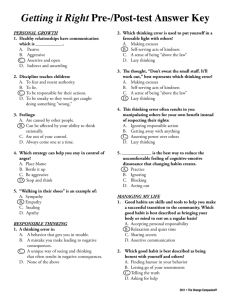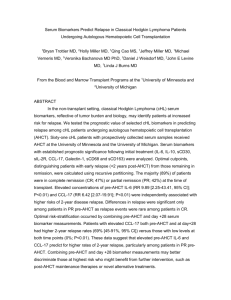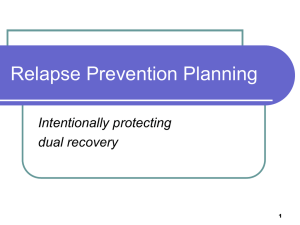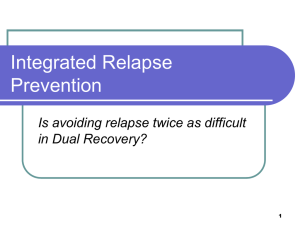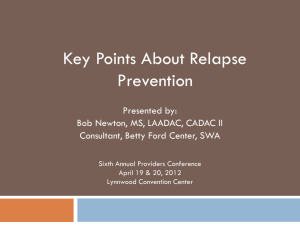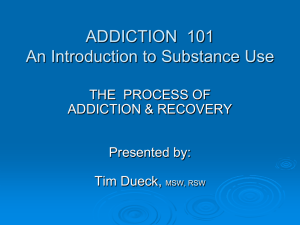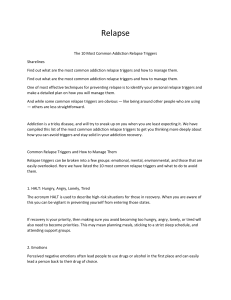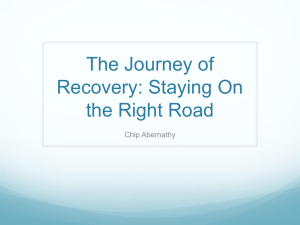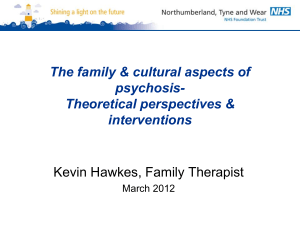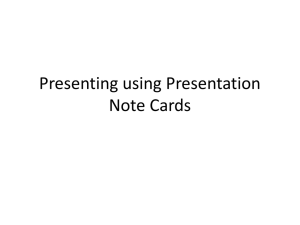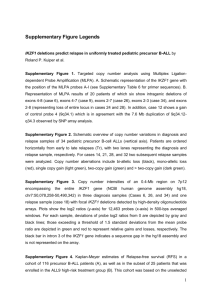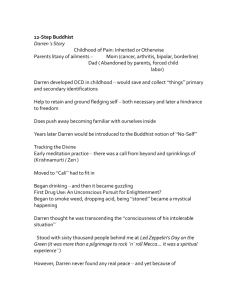Skills to Avoid a Relapse:
advertisement
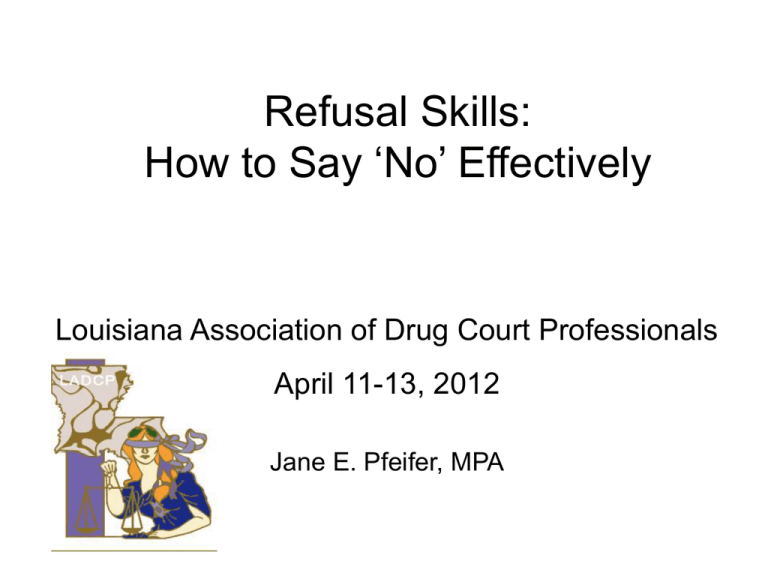
Refusal Skills: How to Say ‘No’ Effectively Louisiana Association of Drug Court Professionals April 11-13, 2012 Jane E. Pfeifer, MPA Addiction • An addiction exists when a person ceases to be able to make choices. Peele, S. (1981). How Much is Too Much, Englewood Cliffs, NJ: Prentice Hall • Continued use despite adverse consequences. DSM-IV How do you define relapse? 1. ________________ 2. ________________ 3. ________________ The Concept of Relapse • The resumption of drug use after a period of abstinence. • A return to the previous level of use. • Engagement in any unsafe behavior such as breaking program, resuming contact with using associates, self-harm, and noncompliance with medications. Relapse “An unfolding process in which the resumption of substance abuse is the last event in a long series of maladaptive responses to internal or external stressors or stimuli.” Malhotra, Basu and Gupta, 2005 Degree of relapse? Lapse/slip vs. Relapse vs. Full blown relapse WHAT? System Response to Relapse Is Crucial • It should be SWIFT • It should be CERTAIN • It should be APPROPRIATE Relapse responses Lapse: continue treatment Relapse: increase services Full Blown: increase services, and control the client’s environment Good Intentions… • “He just put the cocaine right out on my coffee table and I couldn’t say ‘no’”. • “They said we were just going to his sister’s apartment to hang out. I had no idea there would be drugs there.” • “I didn’t think it would be a problem being around my family, all they do is drink beer.” What might lead to relapse? • • • • • • Unresolved stress or trauma Negative or positive emotions Social pressure Use of other substances Presence of drug related cues What else? How can we tell if someone is in a relapse mode? • Return to old, unsafe behaviors (people, places and things) • Letting their guard down • Reduced vigilance • Increased demands • What do you see? Triggers Cues & Triggers • Researchers observed that when presented with stimuli, clients consistently reported feelings of being: 1. “High” 2. “Withdrawal” 3. “Craving” Refusal Skills • Identify triggers/cues • Make a plan to avoid triggers/cues • Develop response strategies Identify Triggers and Cues • Discuss past use situations – Who – What – When – Where • Discuss current challenges • Make a list • Offer insight [Last, because it’s last] Make a Plan • Most risk situations are avoidable, but not all • Review list of triggers/cues • Discuss how to avoid each situation • Write down specific ways to avoid situations • Help the client problem solve Remember these? • “He just put the cocaine right out on my coffee table and I couldn’t say ‘no’”. • “They said we were just going to his sister’s apartment to hang out. I had no idea there would be drugs there.” • “I didn’t think it would be a problem being around my family, all they do is drink beer.” Develop Response Strategies • Review list of triggers and cues • List individually the people who might offer drugs or encourage drug use • Prepare response to each person/situation • Tips: – – – – – – Say ‘no’ first Make direct eye contact Ask the person to stop offering Don’t be afraid to set limits Don’t leave the door open for future offers Be assertive, not passive Thought Stopping •Visual Imagery •Snapping •Relaxation •Call Someone •Pray Other Strategies • • • • • • Delay Ask questions Name the trouble Name the consequence Suggest realistic alternatives Move on Added Challenges: Dual Diagnosis Patients with dual disorders often experience more severe and chronic medical, social and emotional problems. They are vulnerable to both AOD relapse and a worsening of the psychiatric disorder. Patients with dual disorders often require longer treatment, have more crises, and progress more gradually in treatment. (See TIP 9). Recap • What is our role in reducing the likelihood of a client relapsing? • How is it different if we’re the judge? Or the treatment provider? Or the case manager? Or ? • What are the strategies we can use to assist clients before they use? JanePfeifer@msn.com
